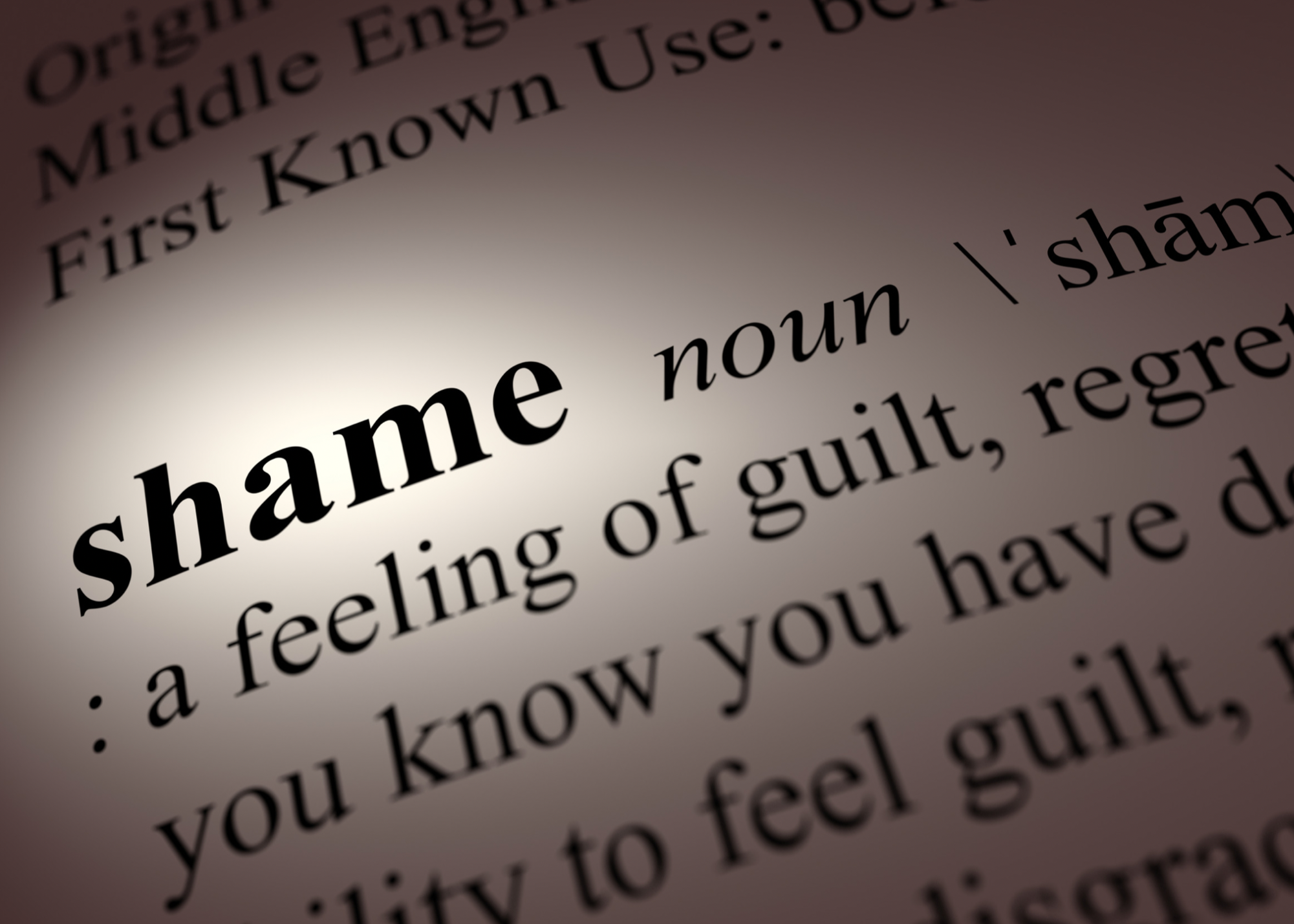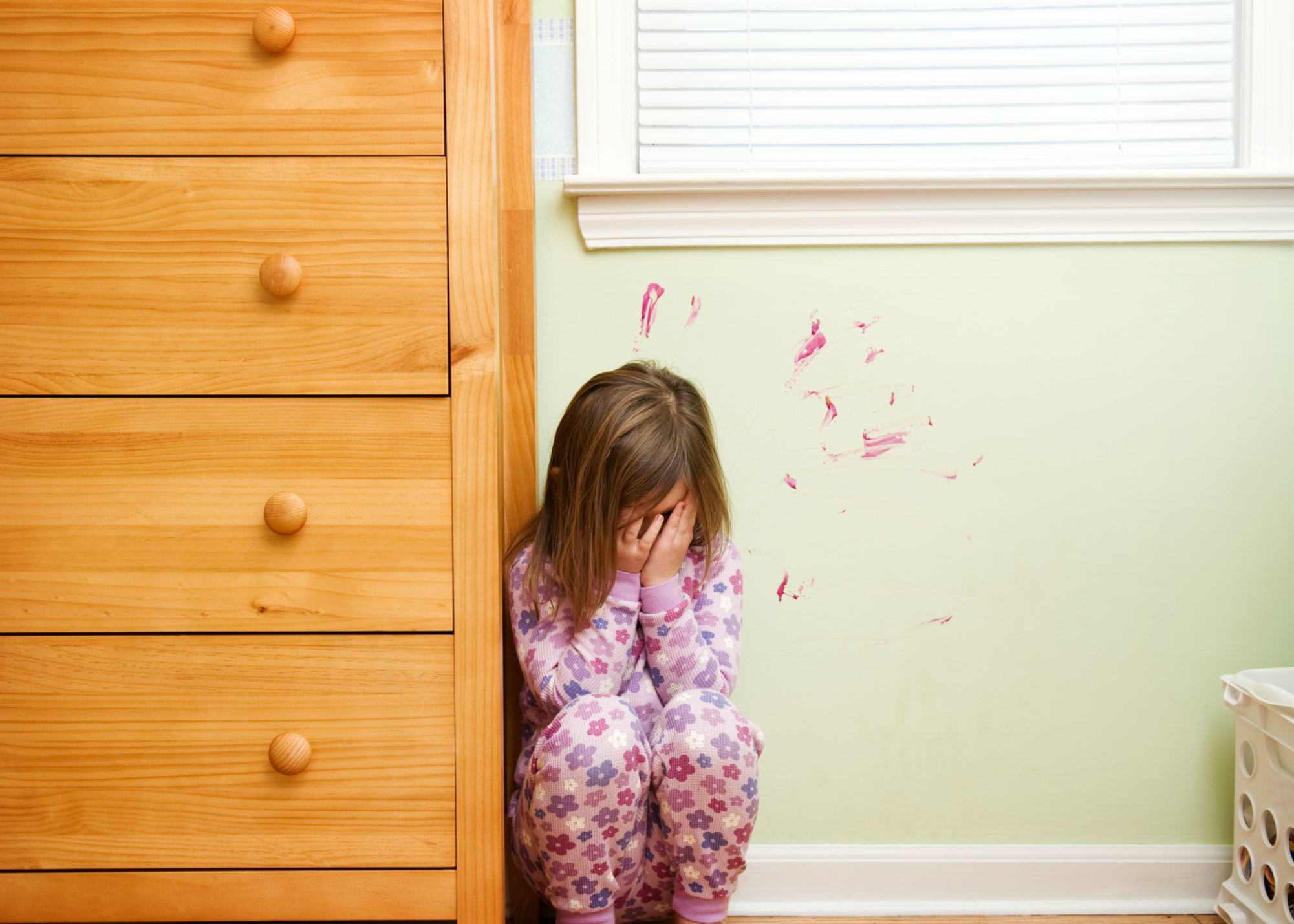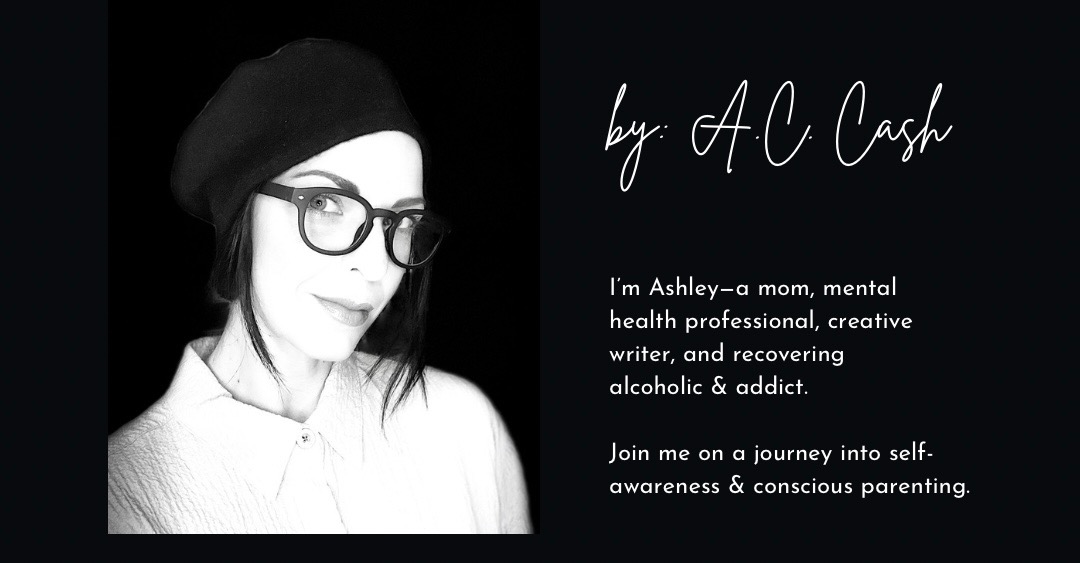
Vol. 20: Guilt, Remorse & The Shame Spiral
To quote one of my favorite humans, Brené Brown, who spent the past two decades studying courage, vulnerability, shame, and empathy and is the author of six #1 New York Times bestsellers,
"If you put shame in a Petri dish, it needs three things to grow exponentially: secrecy, silence, and judgment."
Sit with that statement for a moment and let it sink in.
Shame is a hot topic when it comes to difficult conversations with oneself. But, unfortunately, talking about shame with other people can be even more arduous.
Admitting that shame, guilt, or regret consume you isn't a top priority for many folks because acknowledging our flaws isn't fun. Who enjoys confessing they've done things of which they're ashamed? Not me.
However, regardless of what is causing you the persistent pain of remorse and disgrace, keeping shame a secret only worsens the feeling.

Suppose we don't address our issues with shame. In that case, we allow our emotions to fester—silently, secretly, begrudgingly—and eventually, we begin projecting and shaming others, which can get ugly quickly when we are the primary caregivers of small children.
As an addict in recovery, I must avoid the downward spiral into anxiety and depression caused by keeping shame bottled up, ready to explode, at all costs. Doing so is vital to sobriety, after all. And for me, sobriety is key to best-practice parenting.
Guilt & Shame Are Not The Same
There is a significant difference between shame and guilt.
Guilt is typically related to something we did and is a natural emotion that lets us know when we've done something wrong according to ourselves. Shame is a feeling related to us as individuals. It makes us feel inadequate, useless, and without reason.
Both guilt and shame trigger fear responses in the brain. However, because our guilt focuses on our actions, we have a greater sense of agency in rectifying our mistakes and alleviating our guilt feelings. This sense of agency makes a difference in our brain chemistry.
However, guilt and shame do go hand in hand. Which typically looks like feeling remorseful about something we say or do, then beating ourselves up, mentally and emotionally, shortly after that.
Of course, we're human, which means we're not perfect. We will fail. Failure is inevitable. It's also foundational for success, but that's a topic for another article.
So, we're going to mess up—a lot.
The trick is not to take our moral failings personally. And, yes, that's an action that's as complex as it sounds. But it's the first step in shifting out of shame.
Simply put, it's a two-step process:
Fuck up. Get over it.
But, since we all know simpler doesn't mean easier, allow me to break down the steps I'm taking to escape the shame spiral.
#1. Know Your Triggers
What triggers us is often grounded in our past. Knowing what triggers someone into a shame spiral might best be done with a licensed therapist. However, if a therapist is unavailable to you, journaling about the when, why, and how something sparked negative self-talk and then looking for patterns over time can help you identify your triggers.
A trigger can feel like something so small but can carry the momentum of a giant wave that seems to swoop down and wash you away. Triggers can come from events in our lives that happened too fast or too soon.
It is important to note that trauma is subjective, so instead of minimizing your past experiences, embrace that they affected you.
Noticing and understanding your triggers is a lifelong process of self-exploration. It doesn't happen overnight. It happens over time.
#2. Practice Nurturing & Nourishing Yourself
Compassion is kindness. Like a loving mother, self-compassion stands firm in its determination to be kind to you—that feeling or thought that feels so bad and painful. Practicing nurturing and nourishing yourself when your mind is most critical is resourcing yourself in ways that foster well-being.
For instance, do something empowering or productive, share your feelings and thoughts with a loving friend, intentionally use kind words, acknowledge your shared humanity, or engage in self-care practices like meditation or exercise.
Ultimately, though, the goal of nurturing and nourishing oneself is not to eliminate the shame spiral. Instead, it's to acknowledge it is happening and approach it from a lens that is much more loving and kind.
#3. Seek Connection With Others
One of the harshest things shame does is isolate us.
It separates us from reality, and especially from other people. Then, it pulls us down a rabbit hole full of nasty voices that runs deeper and deeper until we retreat so far into ourselves that it becomes nearly impossible to give or receive the love we, as human beings, require.

As I mentioned, sharing the details of our shame with another person is daunting. But I've discovered the valuable truth behind the old saying: "Get it off your chest."
Sitting with a fellow human member of the collective and voicing the intricacies of my painful remorse saved my soul; it felt like someone lifted a two-ton boulder from my crumbling frame.
Thankfully, this personal connection is always available to me because no matter what I'm going through, others have gone through it, and even more people are experiencing the same thing right along with me.
It might feel like you are alone, but you're not.
You, friend, are a part of a greater archetype of the human experience, and while this doesn't make your pain go away, it does open you up to the love you need to pull yourself out of a shame spiral.
Embracing Shame As Your Ally
Now that I've shared a few ways to cumber shame, and avoid an out-of-control spiral into its depths, let's look at the specific gifts and skills that healthy shame can offer.
Shame arises to help you moderate your behavior and ensure that you don't hurt, embarrass, destabilize, or dehumanize yourself or others.
When the feeling of shame arises, ask yourself:
Who was hurt? What must be made right?
Though many suggest that shame is primarily unhealthy, it is a crucial social emotion. It is essential for developing empathy, and it's the primary emotion that makes you virtuous and capable of being an honorable relationship partner, colleague, and parent—it makes you a better person.
Shame is undoubtedly an emotion that can overwhelm you, but when you can get into a healthy empathic relationship with it, shame can be your friend.
Shame allows you to care for yourself, helping you live up to your internal moral code. But shamefulness is tricky because most of us learn about it by being shamed as children and young adults.
Shame is Not a Parenting Tool
Projecting our shame onto our kids is dangerous because shame is a feeling that sticks around and often lasts longer than you realize or intend.
So while it may seem on the surface like parents who shame their kids on social media get results, recognize that this approach to parenting damages two things you're working hard to create:
- Your child's self-esteem
- Your long-term relationship
For some, there may also be a connection between the reach of public shaming and its long-term impacts.

For example: Not long ago, I shamed my child publicly—in front of half a dozen strangers in the grocery store—because, by the tenth time he yelled, "Deez Nutz!" after being politely asked not to, I lost my shit.
Why? Because I was thoroughly embarrassed. But, remember, a reaction like mine, in this case, likely caused harm to my son's self-esteem. He was only trying to get my attention, albeit poorly.
I apologized to my boy after returning home from the supermarket. You might be thinking, Why should she apologize? He acted out of line.
Sure, but so did I.
I raised my voice, spoke condescendence, and did so at a volume that told everyone in earshot I was ashamed of my kid.
So, instead of allowing that shame to spiral, I said, "I'm sorry," to my son, and I meant it. Then, he followed suit; he felt remorseful about the disobedience and offered a heartfelt apology, which I accepted with wide open arms.
Our kids must see that we, as parents are willing to own up to our mistakes. So even if you're experiencing a degree of remorse that makes it extremely difficult to initiate that conversation, make it happen.
Much like discussing our shame with a friend, a genuine apology under the presence of guilt will have a therapeutic effect on any relationship needing mending.
Furthermore, talking with your kids about the emotional dangers of harboring remorse can leverage your connection as your amplest 'weapon' for influencing them to tame their shame early in the game.
THIS WEEK’S LINKS:

Post a comment